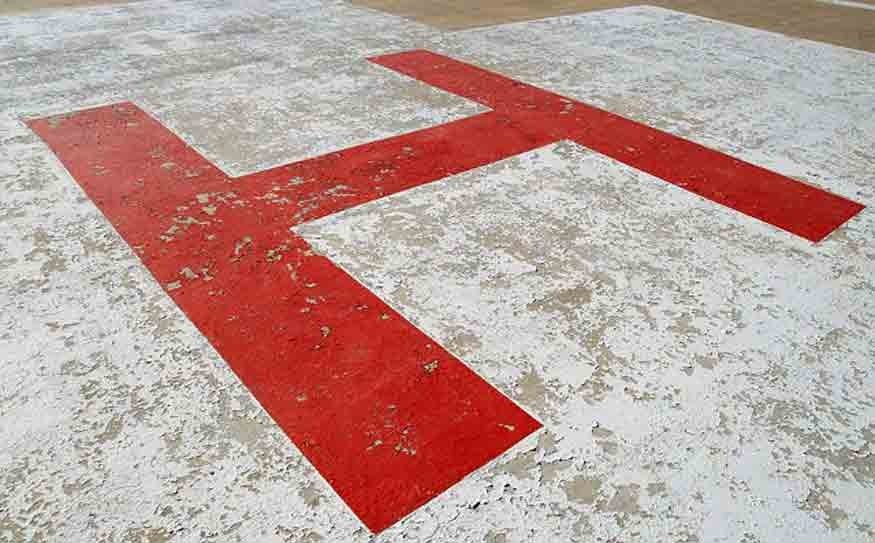A short-term compromise has been reached that will allow the Whistler Health Centre's helipad to remain open until the fall.
The centre's clerical aides and other staff, plus RCMP, BC Ambulance staff and Whistler Fire Rescue, will share duties in keeping traffic and pedestrians a safe distance from landing or departing helicopters, said Clay Adams of Vancouver Coastal Health (VCH).
VCH has submitted a proposal to Transport Canada that "will get physical bodies onto the streets," and this temporary measure had been approved by the stakeholders involved, including the Resort Municipality of Whistler, said Adams.
"We got approval for a short-term plan from Transport Canada which will allow us to keep the helipad in operation until September," Adams said.
In mid-May, Transport Canada inspectors were in Whistler to carry out an audit of the helipad's operations and observed people not obeying traffic signals at Blackcomb Way and Lorimer Road that are activated when a helicopter is about to land or depart.
Adams did not anticipated added costs to implement the plan.
"Whistler Health Care Centre staff will take on the traffic management roles within their existing shifts (meaning they will be at work at the time of a landing/takeoff and not asked to come into work for the specific role). The contribution of our partners from the RCMP and BCAS has been arranged on a volunteer basis," he said, adding that everyone understood that this was untenable in the long term.
The decision came following an audit the federal department made of the helipad's operations in mid-May. At that time, Vancouver Coastal Health, which ultimately has responsibility for the helipad, was given until July 2 to come up with a plan to address the issue by mid-August or risk the helipad being issued a notice of suspension.
Adams said the Resort Municipality of Whistler (RMOW) did not like the idea of barriers, as supported by Transport Canada, and suggested that there was a lack of interest, along with a lack of funding, to make it happen.
"It has been frustrating to get everyone together to find a solution that is workable... We're in the health care business, not traffic management," he said.
Added Adams of the decision to bring in help from emergency responders and the health centre's staff: "This points back to something that is short term vs. long term. I can't see anyone want to commit to this ad inifinitum."
Whistler Mayor Nancy Wilhelm-Morden said she hopes the temporary remedy will work.
"Certainly it will be a challenge if a helicopter is arriving or departing at the same time as some other emergency call because it looks like Vancouver Coastal Health will be relying on a certain extent on the availability of first responders. We'll have a couple of months to see if this does work," she said.
Wilhelm-Morden said no other meetings on the subject were currently arranged but anticipated them.
"There was some discussion about fencing around the helipad and we're not really thrilled about that, but then it can't be very high because that would interfere with the flight path and if you don't have a high fence then it's not going to be very effective. That didn't seem to be a very good solution," she said.
"We did have a discussion about barriers but not very detailed at all."
The mayor said considerable uncertainty remained.
"What I hope would happen is that people pay attention to the darned lights," Wilhelm-Morden said.
"If they would, that's the solution. So maybe it's just a case of better education of members of the public. The lights haven't been up there for that long, and I have to say personally I find them confusing sometimes when I am driving. One light is green and another is red."




